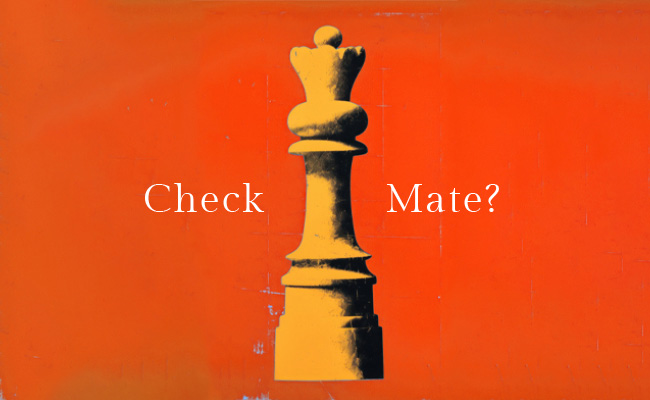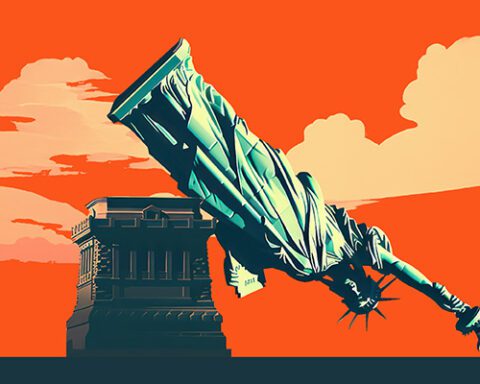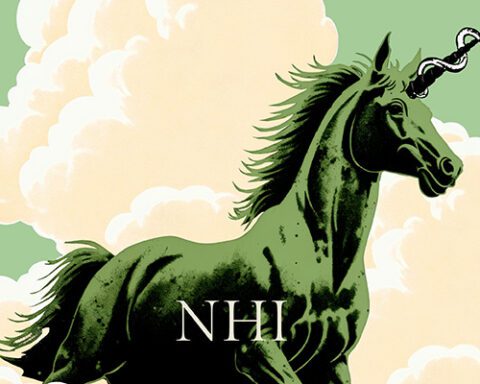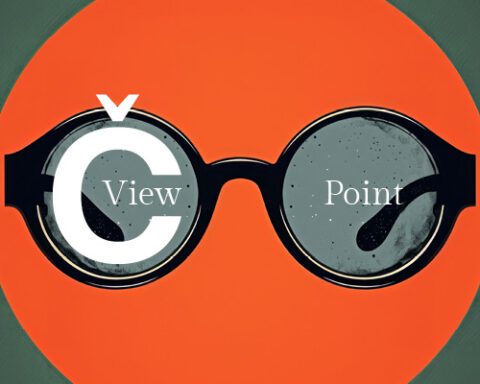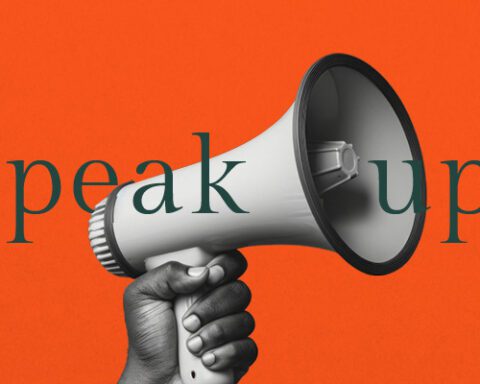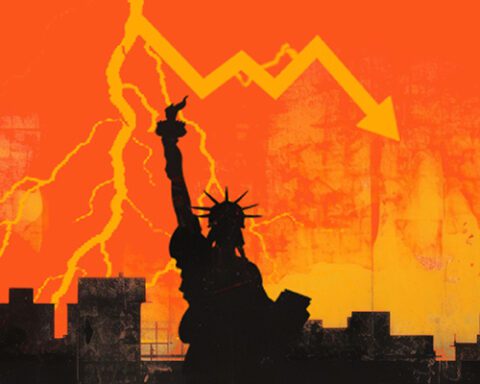“Bad!”, “Sad!”, “VERY BAD!”
US President Donald Trump may have a cat-in-the-hat lexicon and an unhealthy obsession with capital letters, but he’s no joke – not for the world, or South Africa, or President Cyril Ramaphosa.
On the very outside chance you missed it, Trump this weekend signed an executive order cutting US aid to South Africa and opening the way for resettlement of “Afrikaner refugees escaping government-sponsored, race-based discrimination, including racially discriminatory property confiscation”.
It came after Trump’s post on social media platform Truth Social that “South Africa is confiscating land and treating certain classes of people VERY BADLY”.
Trump was, of course, referring to Ramaphosa signing into law the Expropriation Act, which allows for expropriation of land for nil compensation. He’s also taken issue with South Africa’s case against Israel – a staunch US ally – at the International Court of Justice (ICJ). And the insalubrious company the country keeps; think Iran.
The immediate effects of an aid embargo may not be of the greatest order of magnitude – US aid to South Africa is about $440m a year – though it its impact will be felt more keenly in the health sector, with something like 15,000 jobs on the line.
But Trump’s adversarial stance could have further repercussions for South Africa, including the loss of privileges under preferential trade programme the African Growth and Opportunity Act (Agoa), a knock to investor confidence, and the threat of much bigger and financially disastrous trade sanctions down the line.
Potentially “VERY BAD” for South Africa, in other words.
It puts Ramaphosa in a bind. For a start, he’s pitched himself as the president of economic recovery for South Africa; to lose Agoa on his watch would do his cause no favours, never mind what it would do if harsher measures were to be put in place.
Should South Africa lose Agoa, the government may pass it off as “a small contributor” to the economy, says political analyst Ralph Mathekga. And that may be true – the loss of Agoa would account for a 0.06% decrease in GDP, according to the Brookings Institute — but it will hit some sectors, like the automotive and agricultural industries hard.
Still, as Mathekga points out, negative sentiment is building.
To counter that, Ramaphosa needs to inspire confidence among investors – and the position he finds himself in does not allow that. It’s all good and well making the right noises, but “you throw in expropriation of land there – whether it’s justifiable or not – it is certainly not strategic”.
For Ramaphosa to put the economy on a sound footing, he’s going to have to explain himself to the point where it will look like backtracking, Mathekga says.
As he puts it, you can’t push expropriation without compensation as morally defensible, then in the face of consequences for that action, try to explain it away. That, he believes, is essentially watering the policy down.
“When you’re explaining, you’re actually saying, ‘look … not all of [the decisions that have been taken] are beyond discussion’ … You are trying to bring people closer to the table by opening the conversation. That is the only thing you can do,” he says.
Managing by double-speak
Abandoning current policies wouldn’t seem to be an option, at least as far as Ramaphosa is concerned, says Wits University emeritus professor and research consultant Susan Booysen.
If he were to take a serious stand, it would come at a hefty price, she tells Currency – “like international humiliation and the national humiliation of having to backtrack and make explicit compromises. [Ramaphosa] definitely doesn’t want to end his presidential period in that way.”
Of course, Ramaphosa may be quietly hoping that the DA’s legal challenge of the expropriation legislation will succeed, allowing him to take a compromise position.
But this will simply add to the perception that he’s a weak leader, says Booysen – a president who “leads by default, and incidents, and letting things happen”. Which, she says, is a more or less accurate assessment.
In any event, should Ramaphosa make concessions to Trump, he could cede ground to those on the left in his divided party.
As Booysen puts it, Ramaphosa has to defend himself from those in the ANC who see him as being on a conservative, liberal track, while at the same time defending himself from Trump and his acolytes, who are accusing him of the complete opposite.
“On the one hand he has to prove he is not a compromised, liberal, government of national unity-restrained human being; on the other hand [he has to] promote South Africa’s efforts at economic growth and investment,” she says.
Luckily, Booysen doesn’t believe Ramaphosa’s position within the ANC is seriously under threat – especially since the party’s leadership battle has not yet started in earnest; there is no other real alternative to Ramaphosa right now.
And any decision to turf South Africa out of Agoa – which could potentially hurt him – may not have been made by the time the ANC’s mid-year policy conference kicks off.
Mathekga says that Ramaphosa is trying to manage the situation by “double talk” – claiming the country will not be bullied, while at the same time building its communication and its outreach programme to explain the issue.
He’s not sure how long Ramaphosa will be able to placate the left in this way while ramping up attempts to engage with foreign powers.
That, at least, is the issue when it comes to land. There are, however, some who believe expropriation is a sideshow – that the real issue is South Africa’s genocide case against Israel at the ICJ.
When it comes to Israel, the ship has sailed, says Mathekga. South Africa has taken an aggressive stance on Israel, and can’t say “‘Ja, we meant this; we didn’t mean that.’ What we meant was very, very clear.” There is no softening the landing.
But the focus on a single issue may be reductive; there are a multitude of matters at play – some of them building since Joe Biden’s time in the White House.
Among these is how South Africa has positioned itself in relation to countries that are not allies of the US – including Iran, which last year joined the Brics bloc of nations. Those actions come with consequences.
Losing our comfort zone
So what should Ramaphosa do? The best bet is to do nothing, says Sanusha Naidu, senior research associate at the Institute of Global Dialogue – to “not play into the childish antics of the Trump presidency”.
It’s not about reacting to each salvo Trump fires, but playing “an embedded chess game”, Naidu argues.
While the world still revolves around the US – financially and in terms of structural power – that has got diminishing traction, she says.
What South Africa should be doing is capacitating its foreign missions, building a more strategic, more coherent foreign policy, bolstering its relationships with, say, the EU, and finding new markets for its goods, she says. For example, the country should leverage its critical minerals and value-added production; and be more proactive in its industrialisation.
If Trump does step back a bit, it will give South Africa space to try do what it does best, says Booysen, which is “having its cake and eating it”. The bottom line is that Trump’s action, no matter how intemperate he is, means that South Africa has lost its comfort zone – the idea that it can retain Agoa while embracing the Brics; that it can keep the US on side while, say, conducting military exercises and operations with Russia and China.
This sort of foreign policy, riddled with contradictions, is a misstep by the ANC.
As Makgetha explains, Trump’s tirade has happened at a time when the ANC, and Ramaphosa with it, is much weaker, given the party’s loss of support in last year’s election. In that position, the ANC should have tried to “limit the extent to which [it] can go on an expedition – but we’ve seen the ANC actually escalating its expedition despite that reality”.
Donald Trump has left Ramaphosa – and South Africa – in a quagmire. Damned if he does, damned if he doesn’t. Navigating out of this will require the sort of political smarts that we have rarely seen from the leader of the country’s largest party.
Sign up to Currency’s weekly newsletters to receive your own bulletin of weekday news and weekend treats. Register here.
